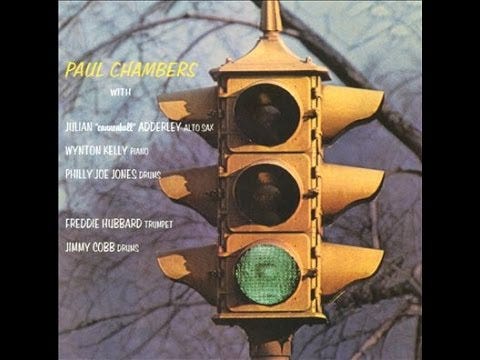The next gig is Monday August 28, trio with Ben Street and Eric McPherson at Mezzrow.
The end of June saw the premiere of Valediction: An Ellington Suite for the Grange Festival under the guidance of Piers Playfair and 23Arts Initiative. My explanation of the score is at NewMusicBox. It was really great that Richard Williams came to the performance and gave it a review at the Blue Moment.
The whole evening Ellington: From Stride to Strings was quite remarkable. Thanks also to producer Frankie Parham for getting us to the finish line. I’m awaiting some rough mixes…if you are a symphonic conductor interested in programming Ellington, hit me back, for Valediction: An Ellington Suite is engaging and successful. A few places need light editing, but the overall arc and final effect is undeniable.
Mathis Picard posed for me right before he went on to make his wonderful concerto debut with the Bournemouth Symphony Orchestra conducted by Gavin Sutherland:
Last month I did a bit of Midwestern family time with my brother Spencer Iverson, my cousin Owen Iverson, and Owen’s wife Jenny Poole. Photo of us in tall corn by Kris Osegard:
We visited one of the best things anywhere, the Lake Superior Train Museum in Duluth. The huge Mallet #227 is a highlight. Zakir Hussain told me, “When I hear Elvin Jones, I think of the competing pistons of a steam locomotive.”
We also watched a Demolition Derby at the Dunn County Fair in my hometown of Menomomie, Wisconsin. There is some kind of rough poetry in this barbaric sport. New to me: the SUV/minivan class, an opportunity for the frenzied announcement, “Let’s watch these grocery getters smash it up!”
Aftermath of that round:
It was hard to get a really good photo of the derby, but the huge creature lurking on the skyline was comparatively photogenic. The correct term turns out to be "Waterspheroid."
Spencer and I usually watch a Tom Baker-era Doctor Who serial together, and this time it was "Robots of Death" (1977). The action is set on a "sandminer," a massive transport that collects rare minerals on desert planets. There’s nothing like lo-fi model work in pre-CGI sci-fi:
While I am still waiting to see both Barbie and Oppenheimer, I did manage to take the Barbie test. (“What kind of Barbie are you?”) It’s actually pretty incredible how detailed the test gets. After 35 multiple-choice questions, it turned out I was Paul Bley Barbie. (!!!)
Taking photos in the kitchen of the Village Vanguard is always a good idea. Billy Hart with Billy Drummond:
Sam Newsome and Meg Okura:
Ben Street and David Wong:
François Zalacain and Guillermo Klein:
with Vinnie Sperrazza and Rob Schwimmer:
and with Adam Nussbaum at the bar.
The gig with Bill McHenry, Masa Kamaguchi, and Jorge Rossy at the Jamboree in Barcelona was really fun; we are going to it again in a year and record. Backstage, I took a candid of Jordi Pujol, who gave me a chance on his Fresh Sound New Talent label in the late 1990s. Thank you Jordi!!!!!
…Finally made it out to Ornithology, the hip new jazz club on the border between Bed-Stuy and Bushwick in Brooklyn. This is the second venue Mitch Borden has succeeded with, the first being Smalls in NYC. Mitch and I share February 11 as a birthday. Yeah Mitch!
Ornithology was hosting the fine Simón Willson quartet with Jacob Shulman, Hayoung Lyou, and Jonas Esser. Hayoung, Simón, and Jacob all studied with me at NEC, which gave me the right to yell, “Hey, look at the camera!”
Congratulations to Aaron Diehl, who is taking over Jazz in July at the 92nd St Y.
Congratulations to Manfred Eicher, who has been awarded the “Bayerischer Staatspreis.”
The first open thread got a lot of interesting activity, so I’ll keep doing open threads around the top of the month. Jesse Rimler suggested the short stories of Thomas Ligotti, a name I’ve been hearing for a while. While I am still at the beginning of my Ligotti investigations, I’m already taken with the brilliant “Notes on the Writing of Horror: A Story.”
Somewhat to my surprise, several people on the thread asked about crime and spy fiction. Quick notes on what I’ve been looking at recently:
I re-read all of Mick Herron’s Slough House series.
This is still not enough to slake my thirst, so I’ll be starting the third round soon. The books are wonderfully re-readable.
(Last year I snagged a selfie with Herron.)
Henning Mankell, Faceless Killers. The first Kurt Wallender gets the series off to a solid start. I am tempted to do an overview, for the collection of Wallender tales are easily my favorite of the many Scandinavian procedurals.
Ross MacDonald, The Ivory Grin. An overview of MacDonald might also be possible, although in this case there’s a lot of reception history out there already. The Ivory Grin is relatively early in the canon, 1952, before the “old family secret or murder from the past” became the ever-present motivating force of MacDonald’s plots. Why is MacDonald so good? You open one and simply must keep reading.
Mario Puzo, The Godfather, Richard Condon, Prizzi’s Honor, and William Goldman, Marathon Man. How does the Puzo classic hold up? Not well, unfortunately, although it is interesting to see how the movie follows the book beat by beat. Condon takes on the Puzo tradition with sardonic wit and writes a much better novel: again, the famous movie follows the original closely. While The Godfather and Prizzi’s Honor made my big list, I didn’t include Marathon Man. Was that an oversight? Sadly, no, for Goldman is not really comfortable in this novel, it’s simply too digressive and over the top. In this case, the famous movie clears out a lot of distracting underbrush.
While in England, good books are everywhere at the charity shops…
Peter Dickinson, The Yellow Room Conspiracy. Dickinson is a fantastic stylist but he frequently has trouble landing the ending. Still, the descriptions of social life are wonderful.
Anthony Price, Colonel Butler's Wolf. This book passed the time pleasantly enough, but in the end I doubt the David Audley espionage novels will last.
Ian Fleming, Moonraker. There is always something new to find when re-reading Fleming, one author whose undeniable genius works in counterpoint with the most goofy miscalculations.
While the eventual espionage plot of Moonraker is starkly absurd and un-engaging, the book starts strong with an amazing chapter-long description of Blades, the most exclusive private gambling club imaginable. The (unintended) camp value is spectacular.
Right before we get to Blades, the author stops to write one of many Fleming paragraphs that reads like an amateur entry for an old copy of Popular Science. Just the worst…or, perhaps in this case, just the best.
It was a few minutes to six and there was thunder about. The sky threatened rain and it had become suddenly dark. Across the square from him, high up in the air, a bold electric sign started to flash on and off. The fading light-waves had caused the cathode tube to start the mechanism which would keep the sign flashing through the dark hours until, around six in the morning, the early light of day would again sensitize the tube and cause the circuit to close.
Offhand, I’d rank the three most compelling Bond novels as Diamonds Are Forever, Doctor No, and Goldfinger. H’mm, perhaps that’s another overview idea….
I’m taking the rest of the month off from Substack and the socials. Transitional Technology has crept up to 6000 subscribers! Thanks to everyone for reading and for listening.
Recent posts include
TT 289: In the Vernacular: Derek Bermel and Tania León
Critics roll out the word “vernacular” to describe rhythmic/bluesy appropriations in American concert music. A representative sentence to stand in for a century’s worth of program notes: “George Gershwin and Aaron Copland helped create the American symphonic sound when they drew on vernacular sources.”
TT 288: Pepper Adams (by Gary Carner)
The book Pepper Adams: Saxophone Trailblazer, published by Excelsior, will be available in paperback on September 1, 2023 and can be pre-ordered on Amazon. The foreword is by Chick Corea. Sincere thanks to author Gary Carner for letting me run this substantial excerpt on Transitional Technology. Like all jazz fans I love Pepper Adams and there is so muc…
TT 284: Philly Joe Jones
The abundant waves of miraculous small group jazz in the 1950’s and ‘60’s probably had something to do with segregation. The best and brightest were encouraged by their elders to go into music as a way up and out, and the best and the brightest did just that.
TT 283: André Watts plays Edward MacDowell; Christopher Nolan's TENET
Sorry to hear of the passing of André Watts. Among other many fine achievements, Watts was an important advocate for Edward MacDowell. At one point MacDowell’s second piano concerto was a repertory staple, one of the few large-scale 19th-century works by an American composer to claim such status. (The concerto was completed in 1885.)
TT 282: Dick Hyman plays "Dizzy Fingers"
(the following is basically a continuation of yesterday’s post) In his book Piano Pro, Dick Hyman spends some time talking about Zez Confrey. Confrey pairs smoothly with Ferde Grofé, who I wrote about a week ago. Grofé was born 1892, Confrey 1895, and George Gershwin in 1898. Gershwin was the genius, but Confrey and Grofé were also important in the Roar…
TT 281: Max Morath, David A. Jasen, Dick Hyman
Max Morath got a fine obit in the New York Times by Robert D. McFadden. Scott Joplin is the gateway, the source, the answer, the undiminished, the triumph. The King of Ragtime published “Maple Leaf Rag” in 1899 and changed the world. During the swing and big band era, Joplin was not too visible, but in the 1950s, records of ragtime began showing up, often…
TT 280: "On the Trail"
Ferde Grofé. Does that name ring any bells? Grofé orchestrated George Gershwin’s Rhapsody in Blue in 1924 and completed The Grand Canyon Suite in 1931. The Leonard Bernstein/NY Philharmonic recording of movement three of Grand Canyon Suite, “On the Trail,” has over 130,000 views on YouTube, probably thanks in part to the charming “western” video made by…
TT 279: "Enfant"
During his early Atlantic years, Ornette Coleman recorded a whole bunch of immortal music in a very short period of time. The final LP was Ornette on Tenor, tracked during March 1961 with Don Cherry, Jimmy Garrison, and Ed Blackwell. It’s a fabulous date, albeit one for connoisseurs: Ornette’s signature flashy and wailing alto is replaced by his often o…

































Speaking of James Bond, there’s a fine young saxophone player, a student of Ben Goldberg, I believe at or just released from a conservatory, either Boston or New York, Nikita Manin. And he opened solo for a Charlie Hunter project here last summer, and as part of his pay, I included a Russian translation of a James Bond novel, although I’m forgetting which.
Last night at City Council I name-checked crisscross because it’s located in our sister city of Enschede; I will post your photos with your permission, of course, of the brain trusts of sunny side, and fresh sounds. To my obscure blog, Plastic Alto which you probably know is named after Ornette Coleman.
Do you use an actual camera or your smart phone?
Do enjoy your break & thanks for the myriad book suggestions (not to forget the music, the pictures, and the wit)!